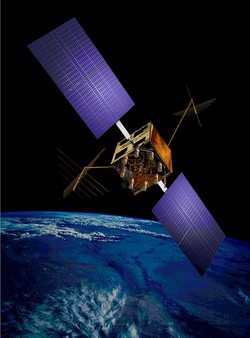Says In FCC Filing That Failure To Comply With DoD And
International Standards For GPS Receivers Cause Of
Interference
After being rebuffed by the chairman of the FCC earlier this
week, hopeful wireless broadband provider LightSquared now says
that the GPS industry has only its self to blame for the
interference caused by its terrestrial transmitters. "The GPS
industry's failure to comply with the Department of Defense's (DoD)
filtering standards is the root cause of potential interference
issues involving LightSquared's proposed broadband wireless
network," LightSquared Executive Vice President for Regulatory
Affairs & Public Policy Jeffrey Carlisle wrote in a letter
filed Thursday at the Federal Communications Commission (FCC).

"Had the GPS industry complied with DoD's recommended filtering
standards for GPS receivers, there would be no issue with
LightSquared's operations in the lower portion of its downlink
band," Carlisle stated in the FCC filing. The DoD's Global
Positioning System Standard Positioning Service Performance
Standard, issued in September 2008, calls for GPS receivers to
filter out transmissions from adjacent bands in order to achieve
the performance intended to be provided by the GPS system."
LightSquared contends that, in addition to ignoring the DoD
standard, the GPS industry also has spurned international
recommendations for GPS receiver design. "Since 2000, the
International Telecommunication Union (ITU), the United Nations
agency that sets international standards for radio and satellite
spectrum, has cautioned that "a more stringent pre-correlator
filter may be needed to protect [GPS] receiver operations from
adjacent band RF emissions," the filing states. The DoD standard,
in effect, grants GPS a 4 MHz "guard band." Now, however, the GPS
manufacturers are rejecting LightSquared's offer of a 23 MHz guard
band that would be created by LightSquared's decision to begin its
terrestrial operations in the lower half of the downlink band."
Instead, according to LightSquared, the GPS industry
unreasonably insists on a 34 MHz guard band – 8.5 times as
wide as the DoD recommendation.

"If all spectrum users demanded the irrational guard band
solutions that GPS manufacturers are demanding, we would not have
broadband in this country and efficient spectrum use would take a
backseat to the squeakiest wheel," Carlisle said. "This type of
precedent would set back the United States' competitiveness by
decades. The GPS industry turned a blind eye to the Department of
Defense's recommendations regarding the manufacturing of commercial
GPS receivers and a blind eye to the ITU's long-standing
recommendations regarding GPS receiver performance."
Carlisle said in his filing that, given the DoD's clear
recommendations and the long-standing ITU warnings, it is not
credible for the GPS industry to now claim that it is not
responsible for the flawed design of its receivers. By demanding
that LightSquared be prevented from building a ground service that
has been authorized for years, the GPS manufacturers are simply
trying to "formalize squatting for free on someone else's licensed
spectrum." He said the GPS industry has a responsibility to use its
licensed spectrum in accordance with international and federal
government standards – not for LightSquared's sake, but for
the sake of the American people who own the public airwaves and who
fund the GPS satellite system.
"The GPS industry benefits from an estimated $18 billion
taxpayer subsidy to offer a commercial service that is completely
dependent on a government satellite system. Despite the
federal handout, they have deliberately ignored Defense Department
criteria for using the restricted system," Carlisle said.
"LightSquared remains committed to working in partnership with
responsible members of the GPS industry and for the benefit of the
public by creating good-paying jobs and economic opportunity at a
time when America desperately needs both."
 ANN's Daily Aero-Term (05.10.24): Takeoff Roll
ANN's Daily Aero-Term (05.10.24): Takeoff Roll Aero-News: Quote of the Day (05.10.24)
Aero-News: Quote of the Day (05.10.24) Airborne 05.06.24: Gone West-Dick Rutan, ICON BK Update, SpaceX EVA Suit
Airborne 05.06.24: Gone West-Dick Rutan, ICON BK Update, SpaceX EVA Suit Airborne 05.03.24: Advanced Powerplant Solutions, PRA Runway Woes, Drone Racing
Airborne 05.03.24: Advanced Powerplant Solutions, PRA Runway Woes, Drone Racing Aero-News: Quote of the Day (05.11.24)
Aero-News: Quote of the Day (05.11.24)




